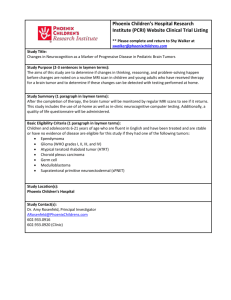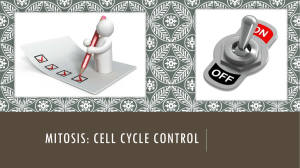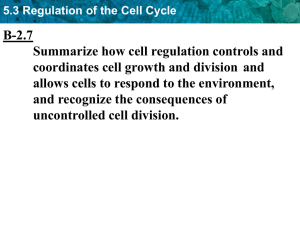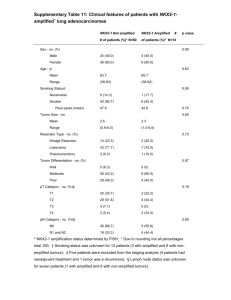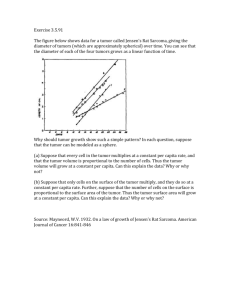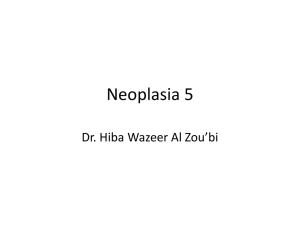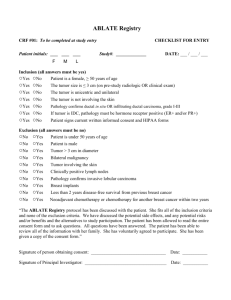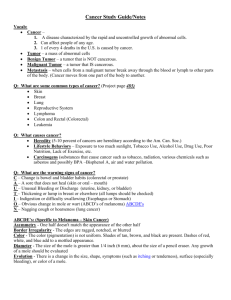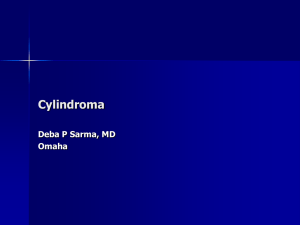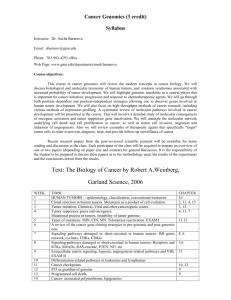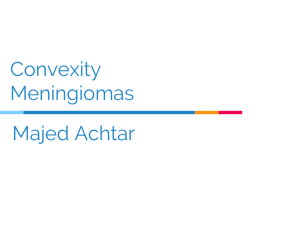Computing Cancer Growth Parameters
advertisement
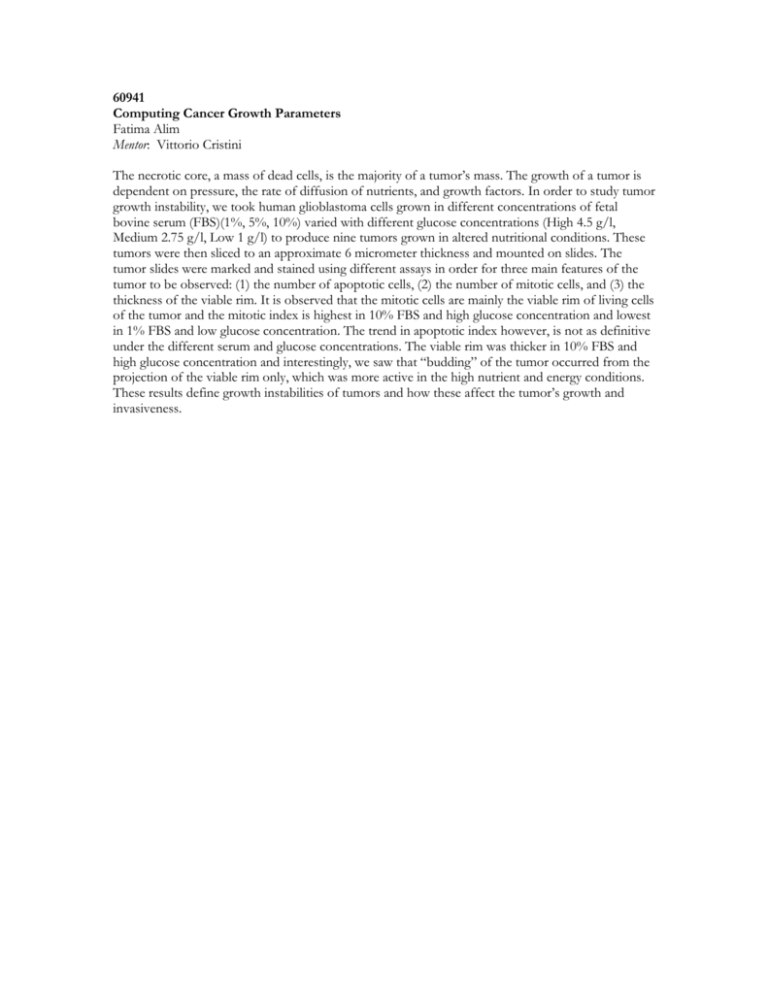
60941 Computing Cancer Growth Parameters Fatima Alim Mentor: Vittorio Cristini The necrotic core, a mass of dead cells, is the majority of a tumor’s mass. The growth of a tumor is dependent on pressure, the rate of diffusion of nutrients, and growth factors. In order to study tumor growth instability, we took human glioblastoma cells grown in different concentrations of fetal bovine serum (FBS)(1%, 5%, 10%) varied with different glucose concentrations (High 4.5 g/l, Medium 2.75 g/l, Low 1 g/l) to produce nine tumors grown in altered nutritional conditions. These tumors were then sliced to an approximate 6 micrometer thickness and mounted on slides. The tumor slides were marked and stained using different assays in order for three main features of the tumor to be observed: (1) the number of apoptotic cells, (2) the number of mitotic cells, and (3) the thickness of the viable rim. It is observed that the mitotic cells are mainly the viable rim of living cells of the tumor and the mitotic index is highest in 10% FBS and high glucose concentration and lowest in 1% FBS and low glucose concentration. The trend in apoptotic index however, is not as definitive under the different serum and glucose concentrations. The viable rim was thicker in 10% FBS and high glucose concentration and interestingly, we saw that “budding” of the tumor occurred from the projection of the viable rim only, which was more active in the high nutrient and energy conditions. These results define growth instabilities of tumors and how these affect the tumor’s growth and invasiveness.
